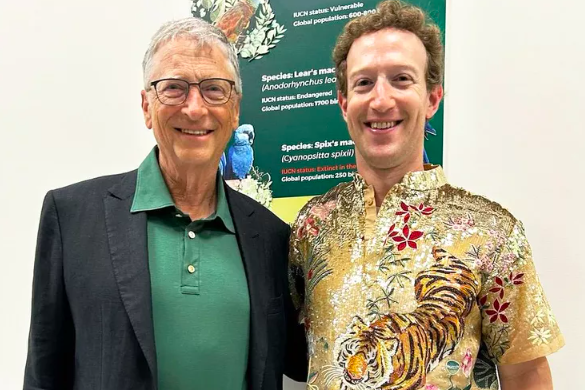DTC brands are struggling to turn a profit. Shopify and some software startups aim to solve this by paying customers to shop.

- Profitability has been a challenge for DTC brands.
- Many are rethinking their customer acquisition strategies to focus on higher-margin rewards.
- Startups like Catch and Fondue are building cash-back tech for brands.
It’s difficult to turn a healthy profit as a DTC brand.
Some are moving away from the heavy discounting and perplexing rewards programs of the past and toward new technology that gives customers cash back for shopping.
Catch, founded in 2020 by CEO Nico Perdomo and COO Denia Ebersole, pays users to shop by connecting to their bank accounts or debit cards. When customers buy from brands that work with Catch, they will receive 5-10% back in store credit.
One advantage Catch touts for brands is the ability to avoid credit-card fees. Another advantage is that it provides a built-in incentive for customers to return and make another purchase.
Historically, DTC brands spent a lot of money to acquire new customers, but changes to iOS tracking have made targeted ads less effective. Instead, many have concentrated on retention. According to Catch, brands that use the platform see customers repeat purchases 65% faster, with 55% less churn and a 45% increase in lifetime customer value. It has partnered with brands such as PacSun, Ouai, and Girlfriend Collective.
Retailers frequently rely on loyalty programs to keep customers returning, but those programs often confuse customers, Perdomo told Insider in a July interview at the Grow NY conference. For years, credit card companies have offered cash-back rewards, but those programs have not benefited brands.
“When I swipe my American Express, the retailer pays 3% to American Express, who simply returns it to me to spend within the American Express ecosystem,” he explained. “What we’re saying is, hey, do that same thing for yourself instead.”
Catch is so confident that its technology will assist its partners in customer retention that it does not charge a fee to process payments. Only when a customer returns to a brand’s website to redeem their store credit will Catch charge a fee of about 5% (credit-card fees are typically about 2.5-3%). According to Catch, it’s almost like getting two sales for the price of one.
“Not only are we saving them money on their first purchase, but we’re also helping them get that customer to come back and shop again,” Perdomo explained.
Shopify, too, has gotten into the cash-back game, launching Shop Cash, a rewards program that gives customers 1% back on purchases made with Shop Pay, the company’s one-click checkout tool. President Harley Finkelstein stated in a press release announcing the launch in June that Shop Cash connects “independent brands to more shoppers” while “rewarding those shoppers for being loyal fans.”
“These brands are spending a lot on customer acquisition, and that’s been their huge obstacle in continuing to grow,” Laura Kennedy, principal analyst at CB Insights, told Insider. “If you can get more from your existing customers or find a way to attract new customers, you might be able to recoup some of that.”
‘We have to revisit those fundamentals’
Fondue is another startup that wants to reinvent loyalty programs by focusing on cash-back rewards. It has collaborated with companies such as Barstool Sports and True Classic. Postscript, an SMS marketing company for Shopify brands, recently acquired Fondue.
DTC brands, like more traditional retailers, have frequently used discounting to attract customers. However, discounting frequently harms retailers’ brand image and profit margins in the long run.
“Coupon codes, like other discounts, the broad discounts at any retailer, mean that you give the discount to everyone, and so you lose that bit of margin from everyone,” Kennedy explained. “The benefit of a customized discount or cash-back is that you don’t lose that margin on every single purchase.” It is only from those people.”
Oren Charnoff, Fondue’s cofounder and CEO, stated that the company was founded on the desire to provide a way for brands to break their coupon-code habits. However, the team discovered that they can sell brands on other benefits as well, such as the ability to keep shoppers engaged enough to make a second purchase.
“What’s underneath that is a whole bunch of cash-back economic advantages that fit extremely well with what’s going on in the market today,” Postscript cofounder and president Alex Beller explained.
He added that as brands struggle with profitability and their valuations fall, it will become even more critical that their promotions are financially efficient. Fondue claims that its cash-back tools have helped its clients increase their SMS and email marketing lists by more than 19%, and that first-time purchases are now 3-5% more profitable.
“Many people view discounting as a cost of doing business rather than as a strategic component of the consumer journey,” Charnoff said. “Right now, in this era of focusing on efficiency and profitability, we have to revisit those fundamentals.”






